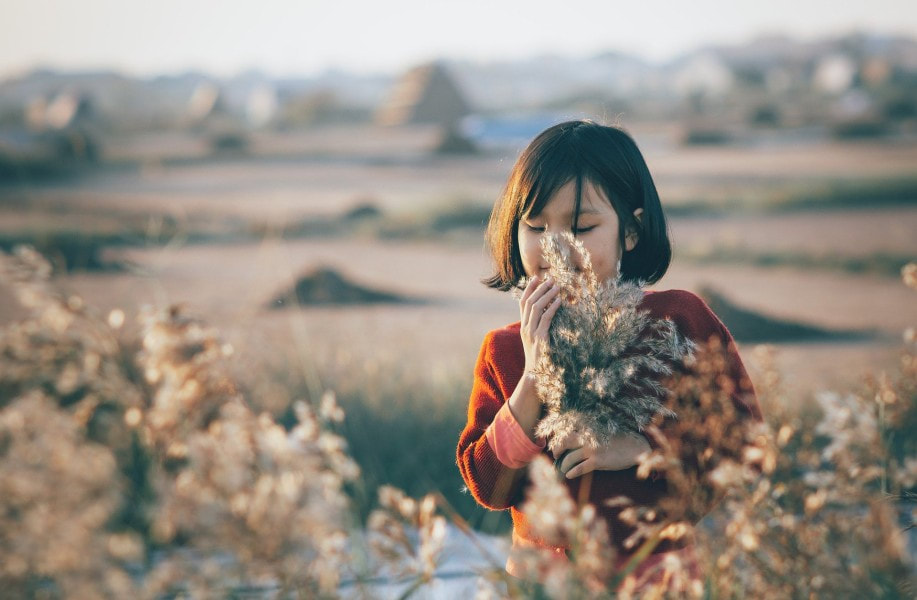|
This article was originally published on LinkedIn on 12 February 2020. To all who have taught me love - family, friends, lovers, and strangers, I wanna thank you. Thank you, for coming into my life, for staying, for leaving, for returning. Thank you, for making me laugh like I have never laughed before. Thank you, for making me shed tears I never knew I had. Thank you, for choosing to put aside your phone just to be present with me. Thank you, for awarding me a genuine smile each time I see you. Thank you, for wondering if I needed something while you were getting one for yourself. Thank you, for leaving me a random message, just to check in on me. Thank you, for keeping an eye out for an empty seat for me, after I had offered you mine. Thank you, for pointing out my shoelaces were undone, even though I had never spoken to you before. --- Thank you, for offering to show me the way. Thank you, for syncing your footsteps with mine, as we walk down familiar paths. Thank you, for that brief moment of touch, from which I felt your warmth. Thank you, for asking permission. Thank you, for asking for my opinion. Thank you, for trusting me with your deepest secrets. Thank you, for not saying anything, when you sense there are no need for words. --- Thank you, for forwarding a poem or article to me, when you think I might enjoy reading it. Thank you, for sending me photos of your travels, during your travels. Thank you, for taking all those pictures of me. Thank you, for looking into my eyes, and for letting me look into yours. --- Thank you, for asking how I'm feeling today. Thank you, for reminding me to travel safe, rather than berate me for being late. Thank you, for teaching me to slow down, when the world is moving too fast. Thank you, for telling me to take as long as I need. Thank you, for inviting me into your space. Thank you, for reminding me that perfection doesn't exist, and I am okay just the way I am. Thank you, for saying you will never hurt me. Thank you, for saying you will always be my sanctuary. --- Thank you, for helping me peel off those masks. Thank you, for making me a better person, in one way or another. Thank you, for raising your voice that day, which made me realize that all you wanted was to be heard. Thank you, for reaching into the depths of my anger to reveal that it was only fear. Thank you, for showing me that underneath the need to control, lies a desire to care. Thank you, for taking such good care of yourself, for fear of pulling me down with you. Thank you, for saying that you are learning to love, without the need to be loved back. --- Thank you, for telling me what you want your funeral to look like, and how your ashes are to be taken care of. Thank you, for including me and my loved ones in your well wishes. Thank you, for all the heartfelt words you have said. Thank you, for telling me about your boundaries, and asking me about mine. Thank you, for just listening. Thank you, for making me feel safe. Thank you, for your patience, for letting me be. Thank you, for cheering me on, even when you have no idea what is going on. --- Thank you, for assuring me it is okay if I don't want to share my thoughts. Thank you, for saying good-bye, even though you don't have to. Thank you, for allowing me to say good-bye, and sometimes make a silent exit. Thank you, for reminding me that this may be the last time I see you. Thank you, for reminding me this isn't the first time I've met you. Thank you, for the many, many lessons on love. -----
0 Comments
Suffering is a part of life. Or is it?
There is a common saying that "pain is inevitable, but suffering is optional". We are constantly faced with challenges and struggles that may bring us pain, but this does not mean that we have to keep suffering from the pain. Suffering can range from traumatic experiences, extreme or chronic stress, to depressive moods, anxiety and other unpleasant emotions. As long as there is unrest, unease, dissatisfaction or turbulence within ourselves, we can be fairly certain that suffering exists. And we usually have no issues identifying the existence of suffering. In mindfulness practice, we are working towards minimizing this suffering by gaining a deeper understanding of why suffering exists. Suffering happens when we are unsatisfied with our circumstances and feel compelled to change them, despite things being out of our control. When we meet with an unpleasant situation we don't like, we develop an aversion or rejection towards the experience. Thoughts develop: No, it shouldn't be this way, this can't be happening to me; emotions like anger, resentment, disappointment, shame, and guilt arise. We begin to cling on to our thoughts and feelings; we ruminate and obsess, replaying and looping little scenes in our head. Likewise, when we encounter a pleasant situation, we are likely to develop an attachment towards what we like. We want it to happen to us all the time, and then we become afraid that it won't, or feel disappointed when it doesn't. We are afraid to let go, and when things do not happen according to our wishes, we refuse to accept reality. The concept of the second arrow is important for us to further understand our suffering. We are often involuntarily struck by a first arrow, causing some pain to us. But on top of feeling this pain from the first arrow, we have the tendency to automatically shoot a second arrow at ourselves, at that exact same spot, thus causing a much bigger and often unnecessary pain. We cannot stop the first arrow from being shot at us, but the second arrow is optional. That second arrow is suffering. Take for example, a loved one has forgotten to wish you on your birthday because they have recently been exceptionally busy. Naturally you feel disappointed, but because your habitual mind starts shooting the second arrow, you begin to think: I always remember his/her birthday, why doesn't h/she remember mine? S/he is losing interest; s/he doesn't love me anymore. Or perhaps your supervisor criticises the recent proposal you had drafted. Immediately, you feel an unpleasant sensation somewhere in your body, and a thought arises in your mind: My report is not good enough. And then you react to that thought with a follow-up of a string of thoughts: That must mean I'm not good enough. Can I really handle this job? I'm such a failure. Why can't I do anything right? Feelings of embarrassment, fear and anxiety may tag along with those thoughts, and the next thing you know, you are suffering. Mindfulness trains our mind to recognize both the first arrow and the second arrow we shoot at ourselves. This recognition allows us to create space around our thoughts and feelings; instead of reacting to them with the second arrow, we can choose to respond in a different way. With mindfulness practice, we learn that our thoughts and feelings are not us, and we do not need to identify with them. We learn to notice when we are telling ourselves stories and falling for those narratives. We learn to watch our thoughts and emptions come and go in the mind, and we cultivate a gentle, non-judgmental awareness towards the habitual nature of our mind. We learn to stop resisting and start accepting things the way they are. We learn to be okay with whatever that arises in our experience. But this does not mean that we give up hope, live indifferently or withdraw from improving our life. In fact, the awareness of our suffering and waking up to it, is by itself an improvement to our life. Instead of reacting impulsively, we are interrupting our negative habitual patterns to respond in a better way. Instead of feeling constantly uneasy, unsatisfied, unhappy with life, we are cultivating more calmness and making peace with ourselves. Learn how to wake up to suffering with the 8-week Mindfulness-Based Stress Reduction (MBSR) Program we offer. |
About The AuthorMiMo founder Erin Lee is a Mindfulness Coach and MBSR Teacher at Mindful Moments, and advocate of mindfulness as the way of life. She conducts the classic 8-Week MBSR Program, as well as the 8-Week MBSR Workplace Program. Categories
All
ContributeAre you a mindfulness practitioner and have meaningful experiences or thoughts about mindfulness that you'd like to share? You can contribute an article on the MiMo blog! Please contact Erin to find out more.
Archives
June 2021
|





 RSS Feed
RSS Feed